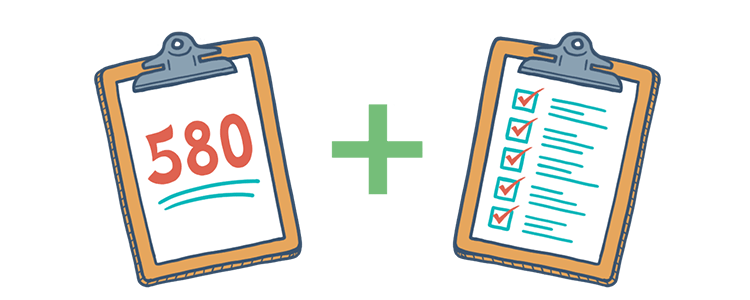Your Lender's Requirements

By now you’ve heard plenty about the FHA’s minimum, 580-credit score requirement on home loans with 3.5% down payments. This is a major reason why so many first-time homebuyers opt for FHA mortgages. It is, however, important to note that while the Federal Housing Administration has set this limit on loans they will insure, it is not always the case that lenders will approve a loan for borrowers with low scores. It is very common that lenders have their own, additional requirements for FHA loans that they provide, generally called “overlays.”
What Are Lender Overlays?
In the context of home mortgages, the word “overlay” refers to eligibility criteria that lenders and underwriters put in place in addition to the requirements set by Fannie Mae, Freddie Mac, the FHA, or any entity that is insuring the loan. A common overlay individual lenders place on FHA loans is a higher credit score requirement than the 500-minimum set by the FHA. Think of it as an added level of protection a lender or investor opts for to avoid defaults and foreclosures.
Why Lenders Place Additional Credit Requirements
When it comes down to it, even though the FHA is insuring your loan, your lender is the one taking on the risk. Now if you’re making a low down payment of 3.5% and you have a low credit score, approving you for a loan would be considered an even greater risk.
Many lenders impose their own rules on top of FHA guidelines to protect themselves from costly foreclosures. Even though they provide FHA-insured loans, they might not be comfortable taking on a borrower with a FICO score of 580. So, they may increase the minimum credit score limit to 620 or so.
Lenders also place overlays according to their business cycle. They may place higher credit score requirements when they notice a trend of delinquent mortgage payments or if they're in a market where home values are going down.
Overlays also change in response to the times. After the housing market crisis in 2008, lenders were forced to place more strict requirements on their approval process. Depending on the economic situation in the country and based on what banks are willing to underwrite, loans may require much higher credit scores in the short term.
Knowing about these additional credit requirements that lenders place can go a long way. Borrowers who know what to expect can start working on improving their FICO scores earlier on to ensure they get the best interest rate from their lenders.
Additional Overlays
Credit scores aren’t the only thing that lenders place overlays on. They can loosen or tighten other criteria that goes into loan approval. Investors or lenders may place eligibility requirements on the number of credit lines a borrower has, minimum employment requirements, and appraisal processes.
It is common for lenders or investors to add overlays in regard to a borrower’s employment history. Where the FHA only requires a borrower have 6 months on the job, and the lender might increase that minimum. They may also place an eligibility requirement on the lines of credit a borrower has and how long they’ve had it.
During the recent breakout of COVID-19, many lenders have loosened guidelines to accept drive-by home appraisals for FHA and VA loans. They have also adopted different forms of employment verification, including emails from employers and bank statements with payroll deposits.
Automated Loan Underwriting
Along with most of the mortgage industry, the FHA has started adopting Automated Underwriting when approving loans. In order to decrease the processing time for loans, lenders use Automated Underwriting which gives a computer-generated loan decision, based on predetermined eligibility factors. That could mean that programs are set to automatically reject applications that show lower credit scores.
This technology is widely used to approve credit cards, and it is becoming more and more popular for home loans as well. While exceptions are made for borrowers with lower scores, those exceptions are made manually. To avoid being disqualified by the automated system, it’s more important than ever that borrowers work to improve their credit scores.

FHA Loan Articles
October 17, 2022If you’ve begun your search for a new home and are looking into mortgage options, you’ve likely heard of mobile, manufactured, and modular homes. While people working in real estate throw these terms around easily, it might be something that leaves everyday homebuyers confused.
August 23, 2022Credit scores tend to be a source of anxiety for many Americans, because they realize the weight they hold when it comes to getting a loan for nearly anything. Taking the mystery out of this 3-digit number goes a long way to helping people understand and increasing their score.
June 16, 2022It’s a great option to consider if you want to build your dream home on your own land instead of buying someone else’s already-lived-in house. FHA One-Time Close mortgages are also referred to as single-close construction loans--you’ll see these terms used interchangeably.
February 24, 2022One of the major hurdles that keeps families from purchasing a home is the need for a down payment. The FHA’s goal is to offer more homebuying opportunities to low- and moderate-income Americans and set more easily achievable down payment requirements for borrowers.
January 31, 2022One of the first steps to take when you decide to buy a home is getting pre-approved for a mortgage. It is important to know what it means to get pre-approved for a home loan, and what the pre-approval letter does and doesn’t do for your home buying chances.
January 10, 2022A home loan is one of the most important investments you can make. Buying a home means owning property, and being a homeowner means there's potential to watch your investment grow in value over time. But first, the lender has to make sure the borrower is a good credit risk.








